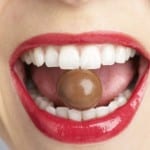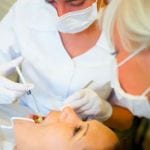 Lots of us have a sweet tooth and at this time of year it’s hard to resist chocolate eggs and Easter cakes, despite all the warnings of health and dental risks. But never fear! Here are some low-sugar alternatives to curb the cravings:
Lots of us have a sweet tooth and at this time of year it’s hard to resist chocolate eggs and Easter cakes, despite all the warnings of health and dental risks. But never fear! Here are some low-sugar alternatives to curb the cravings:
Sweet snacks
The 3 o’clock slump often brings with it a craving for comfort food, but eating snacks such as chocolate bars or a biscuit when you feel sluggish is actually counter-productive for your energy levels. It can also lead to an increased risk of oral health problems and weight gain. If you’re craving a sweet treat at work, here are some healthier ideas:
- Home-made smoothies
- Fruit
- Nuts
- Natural yoghurt
- Granola
- Low fat chocolate mousse
After dinner treats
We often fancy something sweet after a main meal, but there are lots of delicious alternatives to cakes and puddings if you’re looking to satisfy your sweet tooth. These include:
- Frozen yoghurt
- Strawberries covered in dark chocolate
- Sugar-free jelly
- Oatcakes with a little bit of Nutella
- Sorbet
- Baked fruit served with yoghurt
- Malt loaf
- Greek yoghurt with berries, banana or peach
If you want to discuss questions about nutrition or diet or are seeking advice about the use of sugar substitutes to improve your oral health during the Easter period, we will be delighted to talk to you during your next check up. Alternatively you can call the practice at any time.
















